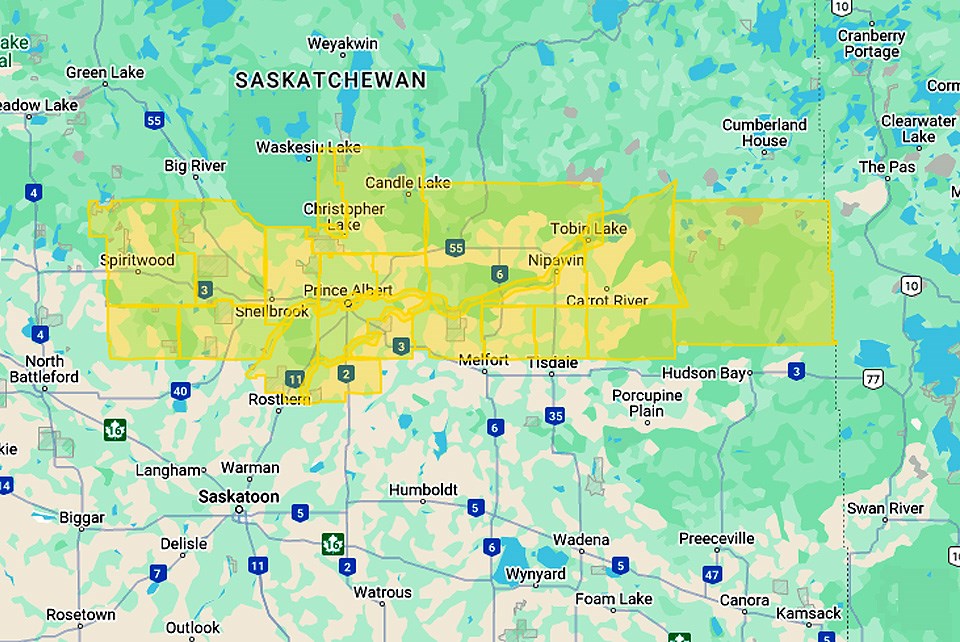NIPAWIN —Smoke is causing or expected to cause poor air quality and reduced visibility due to the smoke plume from wildfires in Saskatchewan and Manitoba, says Environment Canada.
Sunday morning, SaskAlert expanded the area under warning of poor air quality due to smoke affects:
- City of Prince Albert
- District of Lakeland including Emma Lake and Anglin Lake
- R.M. of Arborfield including Arborfield and Zenon Park
- R.M. of Birch Hills including Muskoday Res.
- R.M. of Buckland including Wahpeton Res. and Spruce Home
- R.M. of Canwood including Debden and Big River Res.
- R.M. of Connaught including Ridgedale and New Osgoode
- R.M. of Duck Lake including Duck Lake and Beardy's Res.
- R.M. of Garden River including Meath Park and Albertville
- R.M. of Hudson Bay including Shoal Lake and Red Earth Reserves
- R.M. of Kinistino including Kinistino and James Smith Res.
- R.M. of Leask including Leask Mistawasis Res. and Parkside
- R.M. of Meeting Lake
- R.M. of Moose Range including Carrot River and Tobin Lake
- R.M. of Nipawin including Nipawin Aylsham and Pontrilas
- R.M. of Paddockwood including Candle Lake and Paddockwood
- R.M. of Prince Albert including Davis
- R.M. of Shellbrook including Sturgeon Lake Res.
- R.M. of Spiritwood including Spiritwood and Leoville
- R.M. of St Louis including One Arrow Res. and Domremy
- R.M. of Torch River including Choiceland and White Fox
- R.M. of Willow Creek including Gronlid and Fairy Glen
As smoke concentrations increase, health risks also rise. Residents are urged to limit time spent outdoors and consider rescheduling outdoor sports, activities and events.
Those most at risk from air pollution include people aged 65 and older, pregnant individuals, infants, young children, people with chronic health conditions, and those who work outdoors. Environment Canada recommends these groups reduce or avoid strenuous outdoor activity and seek medical attention if symptoms arise.
Individuals can reduce smoke exposure indoors by keeping windows and doors closed, using high-quality air filters in ventilation systems, or running certified portable air cleaners. In cases of extreme heat, staying cool should remain a priority.
For those who must be outdoors, a well-fitting NIOSH-certified N95 mask or equivalent respirator can help reduce inhalation of fine particles, though some risk may still remain.
Residents are advised to continue monitoring Environment Canada alerts and forecasts. Health advice is available by calling HealthLine 811. Additional information about air quality and safety tips is available at and .




